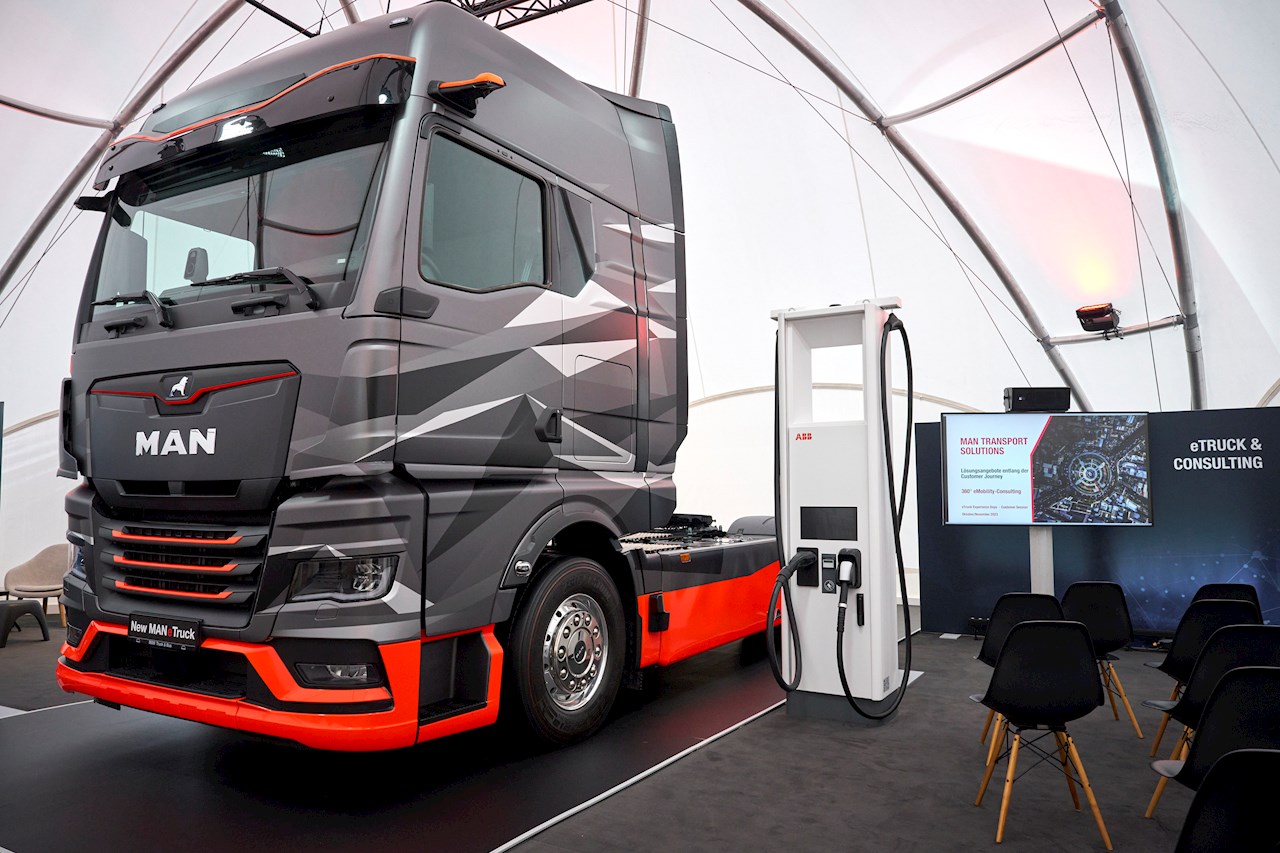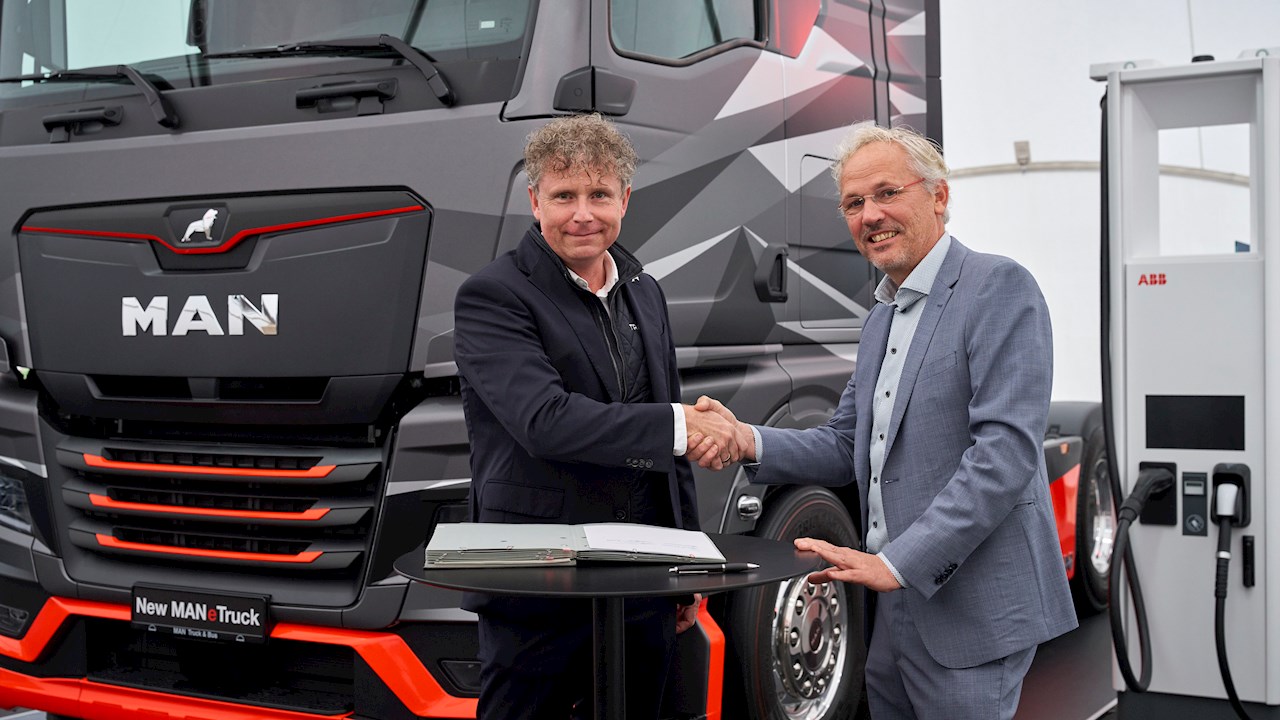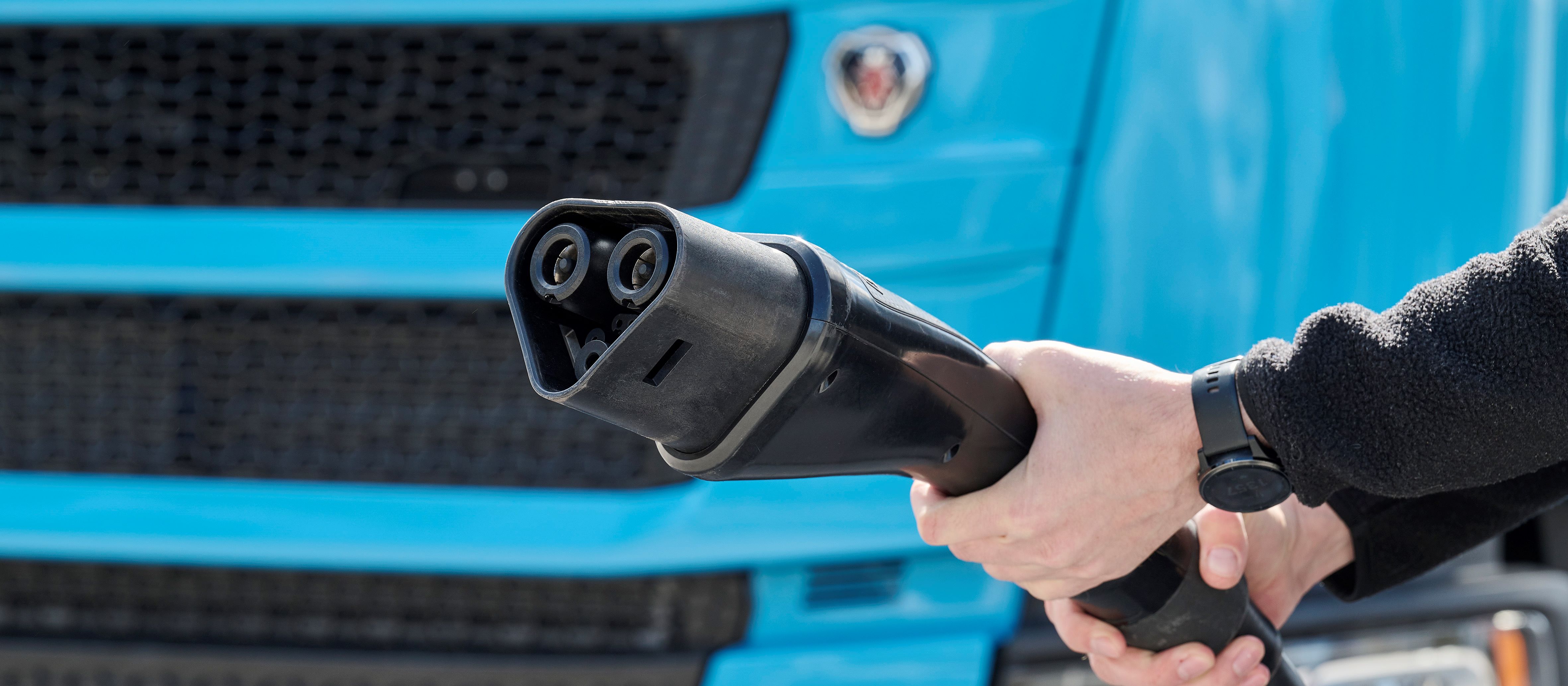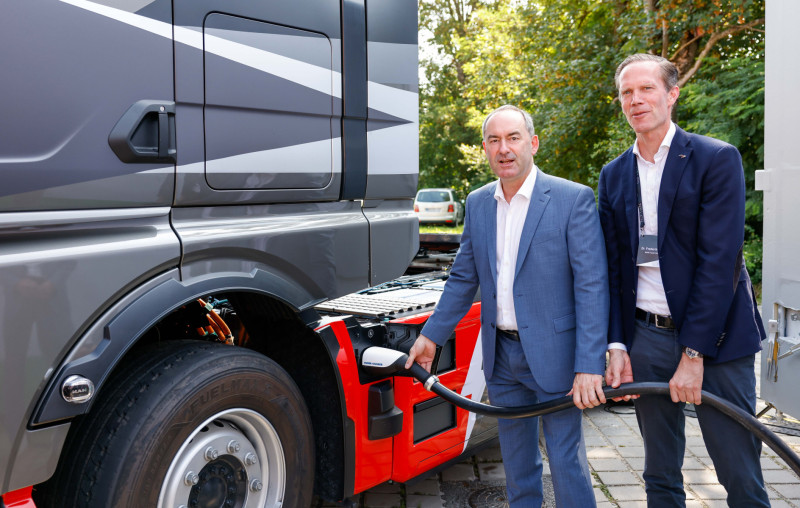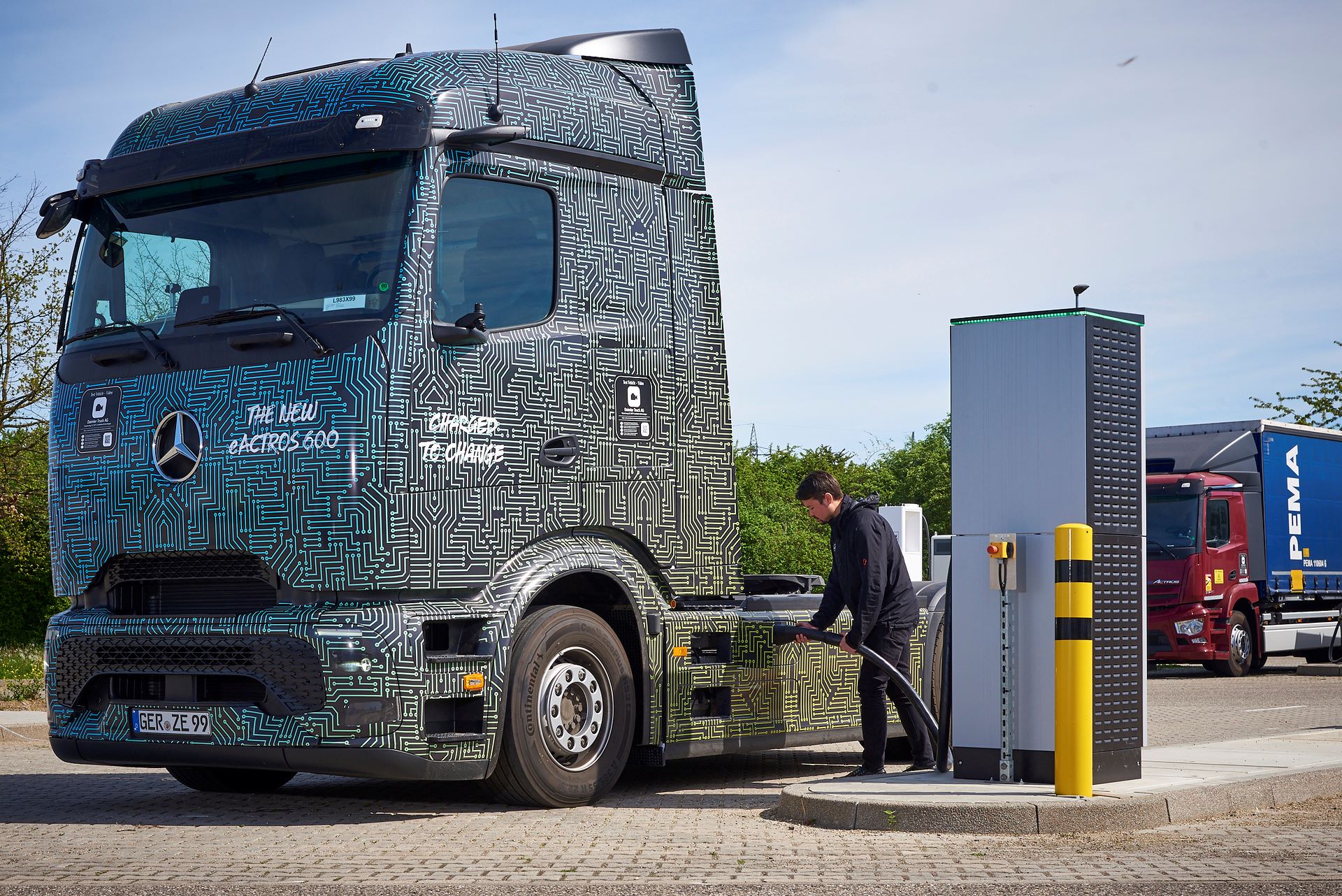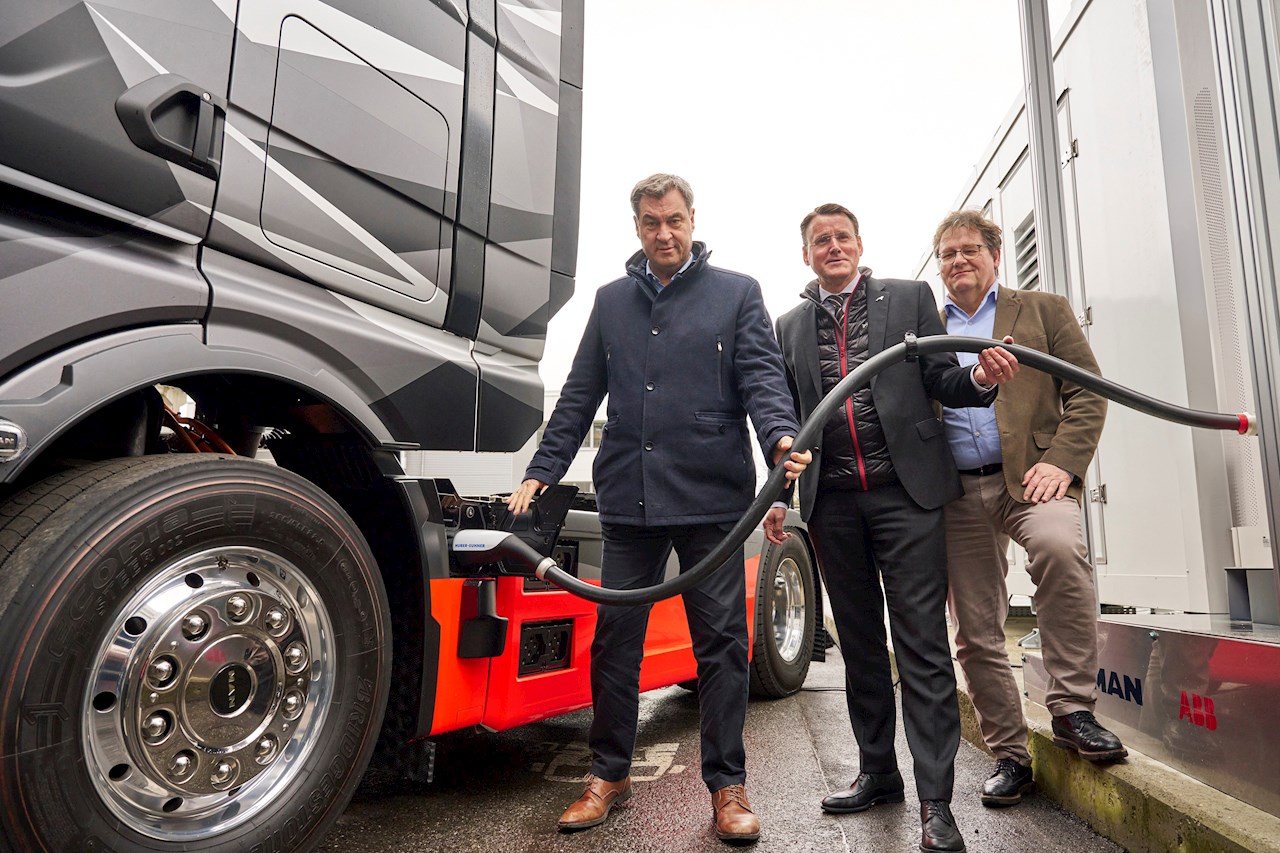
The premiere of megawatt charging was the starting signal for an elementary component of the mobility transition in the commercial vehicle sector towards climate-friendly mobility and the successful electrification of buses and trucks. Especially in national and international long-distance transport or in loading and unloading situations, electric trucks and, in the future, electric coaches will need a fast MCS booster during the legally mandated driving time break. The new technology therefore complements existing solutions: depot charging with lower charging capacities will continue to play a central role in the future.
Alexander Vlaskamp, CEO of MAN Truck & Bus, reiterated his call for more speed in the expansion of the charging infrastructure during yesterday’s premiere of megawatt charging in Munich: "The goal is 30,000 MCS charging points in Europe by 2030, around 4,000 of them in Germany. We put one of the first charging points into operation today. We don't have much time left to set it up. The electric trucks are available, megawatt charging is working. We now need clear signals from politicians, not least to build trust among our customers in favour of electrification. We now need to build and scale up the infrastructure quickly," Vlaskamp said.
The new megawatt charging standard is technically designed for charging capacities of up to 3.75 MW at 3,000 amperes (A). Yesterday, ABB E-mobility and MAN demonstrated more than 700 kW charging power with prototype charging technology. With the finalisation of the MCS standard, charging capacities of over one megawatt will be possible. This will result in a significant improvement in charging times. By way of comparison, today's charging stations with the CCS standard (combined charging system) can be used by both cars and commercial vehicles. They offer a maximum charging capacity of 400 kW at 500 A. The international standardisation process for the MCS is expected to be completed this year. ABB E-mobility and MAN have contributed their expertise to the creation of the MCS standard within the international industry association CharIN.
A lot of energy is needed for MCS charging. When so much electricity is flowing, the infrastructure behind the visible charging points, the grid connections, and the space requirements, for instance at motorway service stations, car parks or truck stops, play a key role. Grid expansion and the digitalisation of the grids are not only essential for the future supply of renewable energy, but also a prerequisite for the charging infrastructure.



